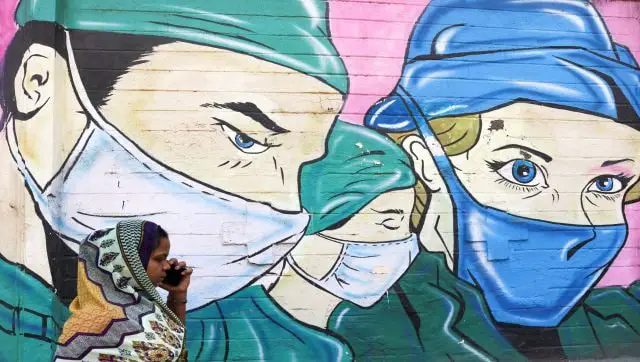India recently concluded its celebration of Navratri, but the festivities were dampened by a tragic incident in Gujarat. Within a span of 24 hours, 10 individuals lost their lives while participating in the traditional dance form called garba. In response to this unfortunate event, Union Health Minister Mansukh Mandaviya issued an advisory urging individuals who have recovered from COVID-19 to refrain from engaging in strenuous activities to prevent heart attacks.
During an event in Bhavnagar, Gujarat, Mandaviya revealed that the Indian Council of Medical Research (ICMR) had conducted a comprehensive study on the subject. The study concluded that individuals who have experienced severe COVID-19 infections should avoid excessive physical exertion such as laborious work, running, and vigorous exercise for a specific period, ranging from one to two years. This precautionary measure aims to reduce the risk of heart attacks among this vulnerable population.
Previous research conducted by the National Institutes of Health also highlighted the potential link between COVID-19 and heart-related ailments. The study suggested that the SARS-CoV-2 virus, responsible for COVID-19, has the ability to infect the tissue lining the arteries and associated macrophages. This infection can trigger inflammation within plaque build-up in the arteries, potentially leading to heart attacks or strokes.
Furthermore, numerous healthcare professionals have observed that COVID-19 can stimulate widespread inflammation, which increases the risk of cardiovascular issues. Dr. Ajay Kaul, Chairman of Cardiac Sciences at Fortis Hospital, explained that COVID-19 can elevate the chances of blood clot formation, affecting the blood vessels that supply the heart. This heightened risk can result in heart attacks and other cardiac complications. Additionally, the New York Times reported that severe COVID-19 infections contribute to systemic inflammation, which further elevates the risk of cardiovascular problems.
Studies have also indicated that individuals who have recovered from COVID-19 face an increased risk of developing various heart-related diseases in the year following their infection. Specifically, these individuals are 1.5 times more likely to experience a stroke, nearly twice as likely to have a heart attack, and have a heightened risk of developing different types of arrhythmias. Moreover, COVID-19 is associated with diseases such as hypertension, with research demonstrating that a significant number of infected individuals develop high blood pressure in the months after contracting the virus.
COVID-19 has demonstrated its ability to impact the heart in multiple ways. For instance, it can cause cardiomyopathy, a heart muscle disorder that impairs the organ’s ability to effectively pump blood. As a result, heart ailments have been on the rise in India since the onset of the pandemic. Data released by the National Crime Records Bureau revealed that the number of deaths due to heart attacks has consistently remained above 25,000 in the last four years, with over 28,000 occurrences in the last three years.
A recent survey conducted in India also highlighted the prevalence of heart-related medical conditions among individuals’ close social networks since the outbreak of the COVID-19 pandemic. Approximately 72% of respondents reported that they had witnessed one or more individuals within their social circles experience medical conditions such as brain stroke, cardiac arrest, heart attack, and accelerated cancer progression. Another survey revealed a 21% increase in the number of people who had experienced such incidents with their close contacts in the past year.
These trends are not limited to India alone. In the United States, the number of heart attack deaths increased by 14% within the first year of the pandemic. Adults aged 25-44 saw a 29.9% increase, adults aged 45-64 experienced a 19.6% increase, and adults aged 65 and older witnessed a 13.7% rise in heart attack deaths compared to the period before the pandemic. Similarly, the United Kingdom has reported almost 100,000 excess deaths since the start of the COVID-19 pandemic, with more than 500 individuals dying each week from heart disease, heart attacks, or strokes.
The impact of COVID-19 on cardiovascular health is a global concern. It is essential for individuals who have recovered from severe COVID-19 infections to prioritize their cardiovascular well-being and take necessary precautions to reduce the risk of heart-related complications. By adhering to the guidelines provided by healthcare authorities and experts, individuals can safeguard their heart health and counter the potential consequences of the virus.


